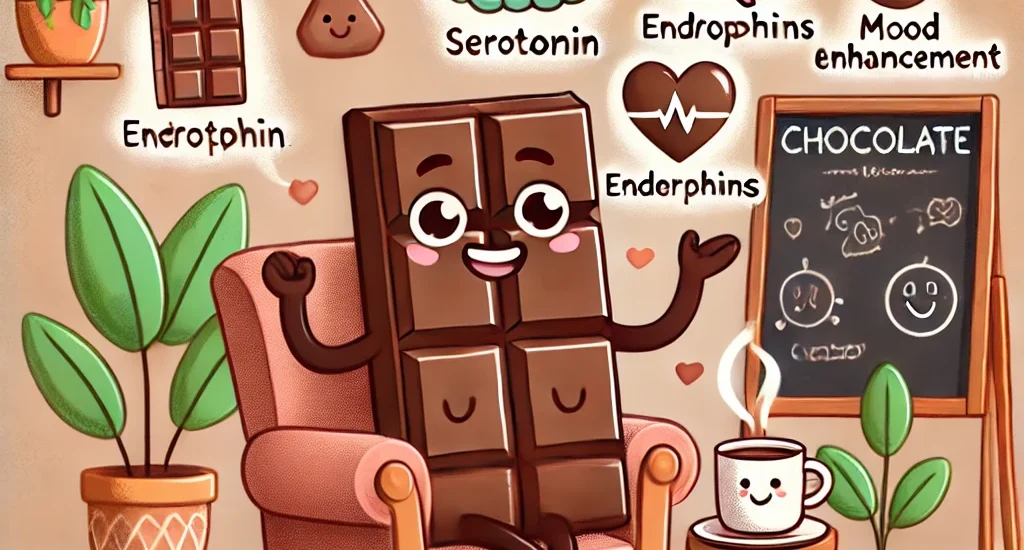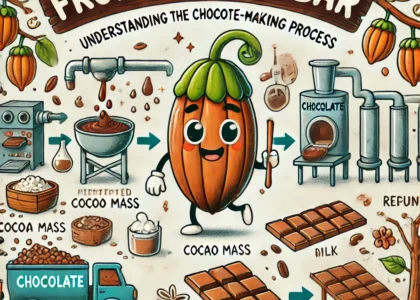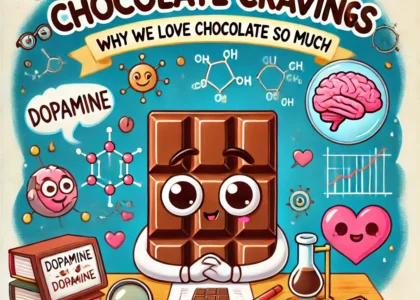Introduction
Chocolate has long been associated with comfort, pleasure, and even romance. But beyond its reputation as a tasty treat, does chocolate have scientifically backed benefits for mental health? In recent years, research has increasingly examined the complex relationship between cocoa compounds and brain function, mood regulation, and stress relief. This article on Chocolate and Mental Health explores the biochemical components of chocolate that may influence mental well-being, reviews clinical studies on mood enhancement, and provides practical guidance on how to enjoy chocolate responsibly for mental health support.
1. The Chemistry of Chocolate and the Brain
Chocolate is a rich source of bioactive compounds that interact with brain chemistry:
- Theobromine: A mild stimulant related to caffeine, known to promote alertness and improve mood.
- Phenylethylamine (PEA): Sometimes called the “love drug,” it is associated with feelings of attraction and euphoria.
- Flavanols: Antioxidant compounds linked to improved blood flow and neuroprotection.
- Tryptophan: An amino acid precursor to serotonin, a neurotransmitter key in mood regulation.
- Magnesium: A mineral involved in nerve function and mood stabilization.
These compounds collectively may influence neurotransmitters such as dopamine, serotonin, and endorphins, which regulate pleasure, reward, and emotional well-being.
2. Chocolate’s Effect on Neurotransmitters
Dopamine
Chocolate consumption can stimulate dopamine release, which is linked to the brain’s reward system. This dopamine surge partly explains chocolate’s pleasurable effects and its capacity to reduce cravings and promote positive feelings.
Serotonin
Serotonin helps regulate mood, anxiety, and happiness. Chocolate contains tryptophan, which is converted in the brain to serotonin, potentially contributing to mood enhancement. Additionally, the sugar content can increase insulin, which indirectly boosts tryptophan uptake in the brain.
Endorphins
Eating chocolate can trigger the release of endorphins, natural painkillers that create feelings of euphoria or well-being.
3. Flavanols and Cognitive Health
The flavanols in cocoa have antioxidant and anti-inflammatory properties. Research suggests these compounds can:
- Improve cerebral blood flow, supporting better cognitive function.
- Enhance memory and attention in older adults.
- Protect neurons from oxidative stress.
A number of randomized controlled trials have demonstrated improved executive function and working memory following cocoa flavanol supplementation.
4. Stress Reduction and Chocolate
Stress activates the hypothalamic-pituitary-adrenal (HPA) axis, leading to cortisol release. Chronic stress is linked to mood disorders and cognitive decline.
Studies show that moderate chocolate consumption may:
- Reduce perceived stress and cortisol levels.
- Promote relaxation and improve calmness.
- Enhance subjective well-being, especially dark chocolate with higher flavanol content.
5. Clinical Studies and Evidence
- A 2013 study published in Psychopharmacology found that participants who consumed high-flavanol cocoa daily showed significant improvements in cognitive performance and mood.
- Research in Appetite journal (2016) linked chocolate cravings and consumption to positive mood states and emotional regulation.
- A 2020 systematic review in Nutrients concluded that cocoa flavanols have neuroprotective effects and potential to improve mood and cognitive outcomes.
While promising, experts caution that many studies are short-term or have small sample sizes, so further research is necessary.
6. Moderation Matters: How Much Chocolate Is Beneficial?
Overindulgence can lead to excess calories and sugar, potentially negating benefits and causing negative health outcomes.
Recommended intake:
- 20-40 grams of dark chocolate (70%+ cocoa) per day is often cited as a reasonable amount to enjoy benefits without overconsumption.
- Milk chocolate and sugary confections provide less flavanols and may have limited mood benefits.
7. Choosing the Right Chocolate for Mental Health
For maximum mental health benefits:
- Opt for dark chocolate with a high cocoa content (70% or higher).
- Avoid chocolates with excessive added sugars or artificial additives.
- Consider single-origin chocolates, which may have higher flavanol content.
- Try to include chocolate as part of a balanced diet rich in fruits, vegetables, and healthy fats.
8. Psychological and Social Factors
Enjoying chocolate can also be a psychosocial experience—sharing it with others, ritualizing chocolate breaks, or pairing it with mindful eating practices may amplify its positive effects.
Conclusion
While chocolate is not a cure-all for mental health, scientific evidence supports its potential as a natural mood enhancer and cognitive booster when consumed mindfully and in moderation. Its rich mix of bioactive compounds interacts with brain chemistry to promote pleasure, reduce stress, and support cognitive function.
Next time you savor a piece of quality dark chocolate, remember you’re indulging in a treat that not only delights your palate but may also nurture your mental well-being.
References
- https://www.ncbi.nlm.nih.gov/pmc/articles/PMC4696435/
- https://www.ncbi.nlm.nih.gov/pmc/articles/PMC5474946/
- https://www.frontiersin.org/articles/10.3389/fnut.2021.644704/full
- https://www.psychopharmacology.com/article/10.1007/s00213-012-2870-3/fulltext.html
- https://www.nutrients-journal.com/articles/1587






